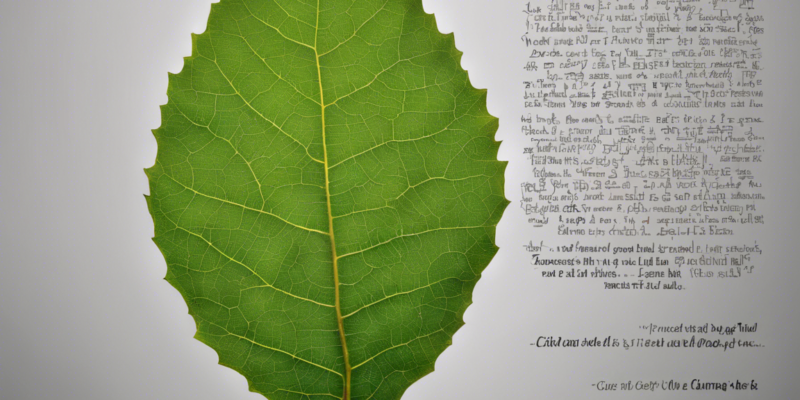Introduction
Houseplants are a wonderful addition to any indoor space, adding greenery and life to your surroundings. However, ensuring the health and well-being of your houseplants can sometimes be a challenging task. One common issue that plant owners face is curing a yellow leaf. Yellow leaves can indicate a variety of problems, from overwatering to nutrient deficiencies, but with the right care and attention, you can often bring your plant back to health. In this comprehensive guide, we will explore the various reasons your plant’s leaves may be turning yellow and provide tips on how to cure them.
Identifying the Cause
1. Overwatering
One of the most common reasons for yellow leaves on houseplants is overwatering. When a plant receives more water than it needs, the roots can become waterlogged, leading to a lack of oxygen uptake and eventual root rot. Signs of overwatering include yellowing leaves, wilting, and mushy or soft stems.
2. Underwatering
On the opposite end of the spectrum, underwatering can also cause yellow leaves. When a plant does not receive enough water, it cannot perform essential functions like nutrient uptake and photosynthesis. Leaves will often turn yellow or brown, and the plant may begin to wilt.
3. Nutrient Deficiencies
Yellow leaves can also signal that a plant is lacking essential nutrients, such as nitrogen, potassium, or magnesium. Different nutrients deficiencies will manifest in different ways – for example, a nitrogen deficiency may cause the lower leaves to turn yellow first, while a magnesium deficiency may cause yellowing between the leaf veins.
4. Pests
Certain pests, such as spider mites, aphids, or mealybugs, can also cause yellowing leaves. These insects feed on the plant, damaging its ability to photosynthesize and leading to yellow, distorted foliage. Check the undersides of leaves for signs of pests, and treat the infestation promptly.
Curing the Yellow Leaves
1. Adjust Watering
Depending on the cause of the yellow leaves, you may need to adjust your watering routine. If the issue is overwatering, allow the plant to dry out slightly between waterings. If underwatering is the problem, increase your watering frequency, ensuring that the plant’s roots receive adequate moisture.
2. Check Drainage
Ensure that your plant’s container has proper drainage holes to prevent water from pooling at the bottom. Good drainage is essential for preventing root rot and other moisture-related issues.
3. Assess Light Levels
Inadequate light can also cause yellow leaves, as plants require light for photosynthesis. Place your plant in a location where it receives the appropriate amount of light for its species – some plants require bright, indirect light, while others may thrive in lower light conditions.
4. Feed Your Plant
If nutrient deficiencies are the cause of yellow leaves, consider fertilizing your plant with a balanced, water-soluble fertilizer. Follow the manufacturer’s instructions for application rates and frequency to avoid over-fertilizing, which can also harm your plant.
5. Treat Pests
If you suspect that pests are causing the yellow leaves, isolate the affected plant to prevent the infestation from spreading. Use organic or chemical treatments to eradicate the pests, being sure to follow the instructions carefully to protect your plant and yourself.
FAQs
1. Why are the leaves on my houseplant turning yellow?
Yellow leaves on houseplants can be caused by a variety of factors, including overwatering, underwatering, nutrient deficiencies, and pests.
2. How can I tell if my plant is being overwatered?
Signs of overwatering include yellowing leaves, wilting, and mushy or soft stems. You may also notice an unpleasant smell coming from the soil.
3. How often should I water my houseplants?
The frequency of watering will depend on the plant species, its size, the potting mix, and environmental conditions. It’s best to check the soil moisture level before watering to avoid over- or underwatering.
4. Can I save a plant with yellow leaves?
In many cases, a plant with yellow leaves can be saved with the right care and attention. Identifying and addressing the underlying issue is key to restoring your plant’s health.
5. Should I trim off yellow leaves?
It is generally safe to trim off yellow leaves from your plant, as they are unlikely to recover. Use clean, sharp scissors or pruning shears to make clean cuts and prevent further damage to the plant.
6. How long does it take for a plant to recover from yellow leaves?
The time it takes for a plant to recover from yellow leaves will depend on the underlying cause and how quickly it is addressed. With proper care, you may start to see improvements in a matter of weeks.
7. Can yellow leaves turn green again?
Yellow leaves are unlikely to turn green again once they have yellowed. However, with the right care, your plant can produce healthy green foliage in new growth.
8. Is it possible to over-fertilize my plant?
Yes, it is possible to over-fertilize your plant, which can cause fertilizer burn, salt buildup in the soil, and other issues. Always follow the instructions on the fertilizer package and avoid excessive feeding.
9. How can I prevent yellow leaves on my houseplants?
To prevent yellow leaves, ensure that your plants receive the right amount of water, light, and nutrients. Regularly inspect your plants for signs of pests and address any issues promptly.
10. When should I repot my houseplant?
Repotting your houseplant may be necessary if it has outgrown its current container, the soil has become compacted, or the plant is showing signs of stress. Repot in the spring or early summer for best results.
In conclusion, caring for houseplants requires attention to detail and a keen eye for signs of distress, such as yellow leaves. By identifying the underlying cause of yellowing foliage and taking appropriate remedial actions, you can help your plant recover and thrive once again. Remember to provide your plants with the right balance of water, light, nutrients, and care to ensure their health and longevity.


Comments